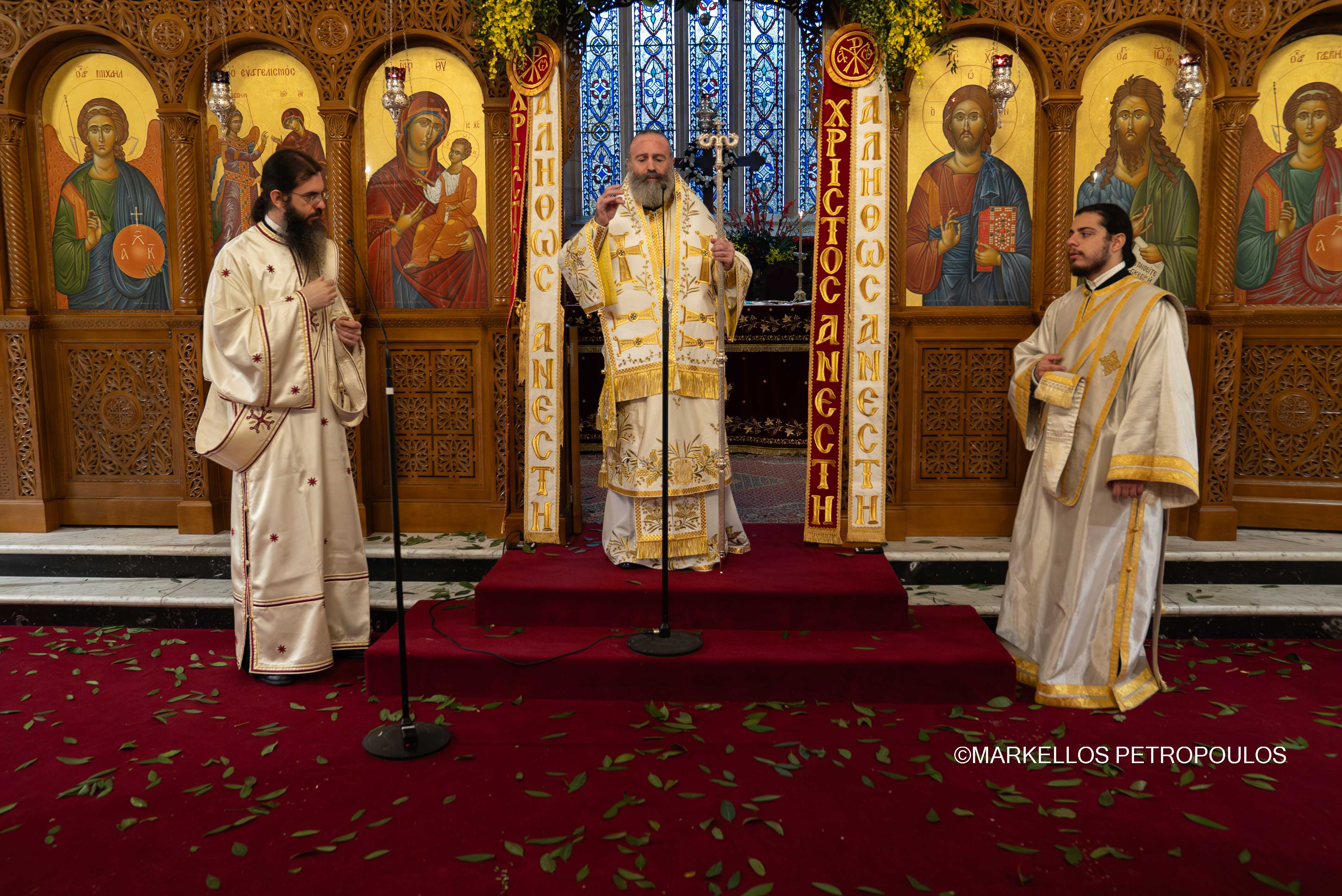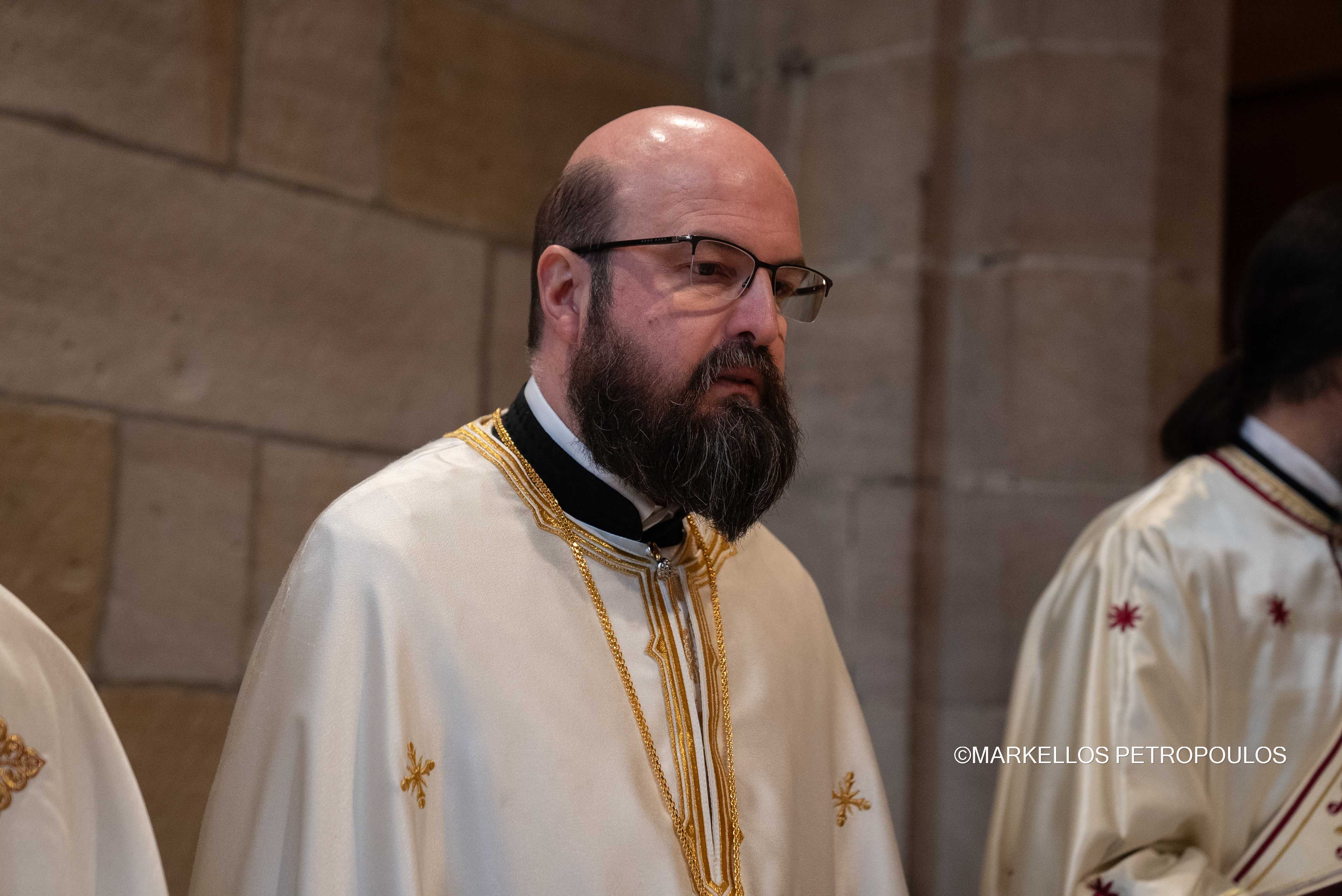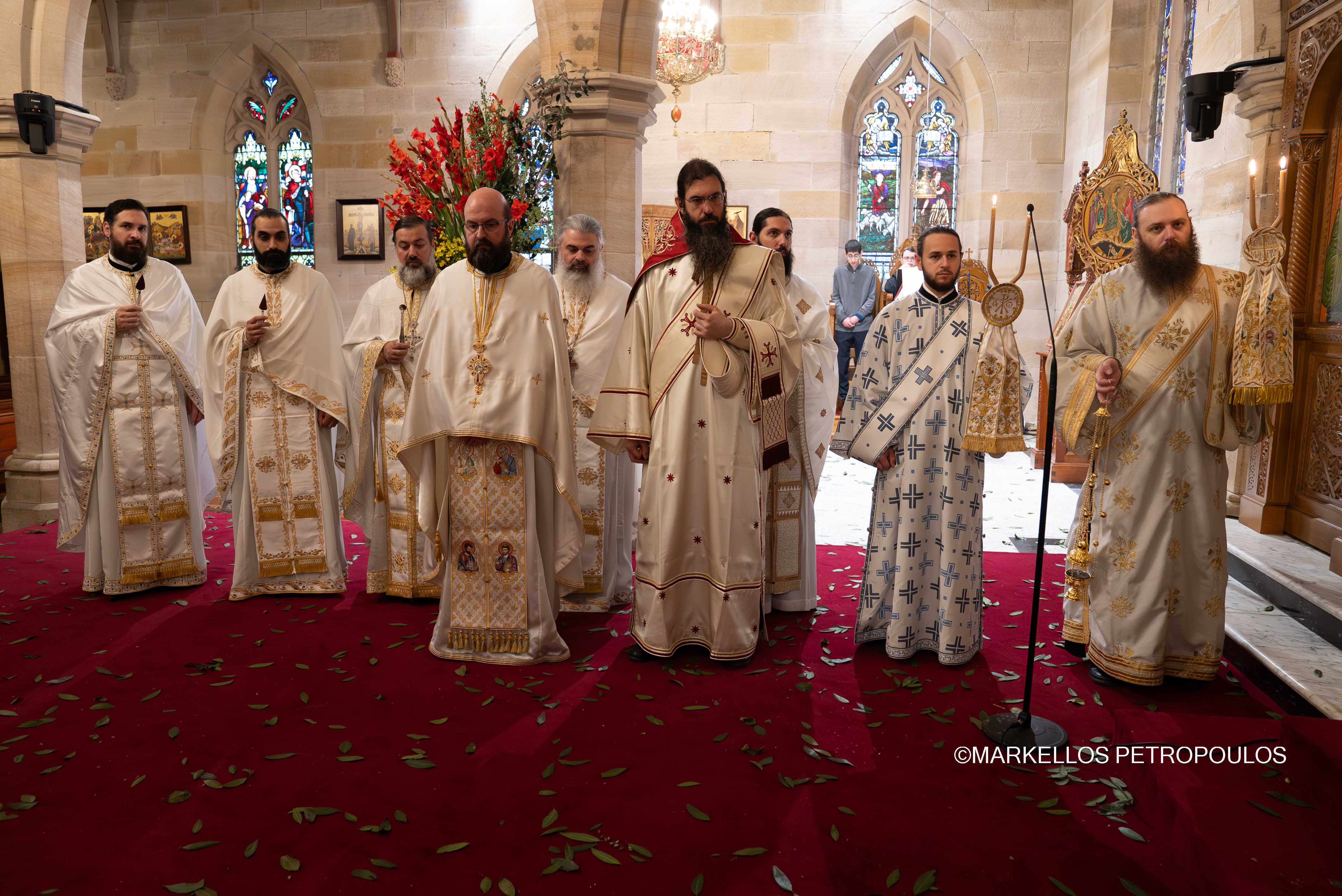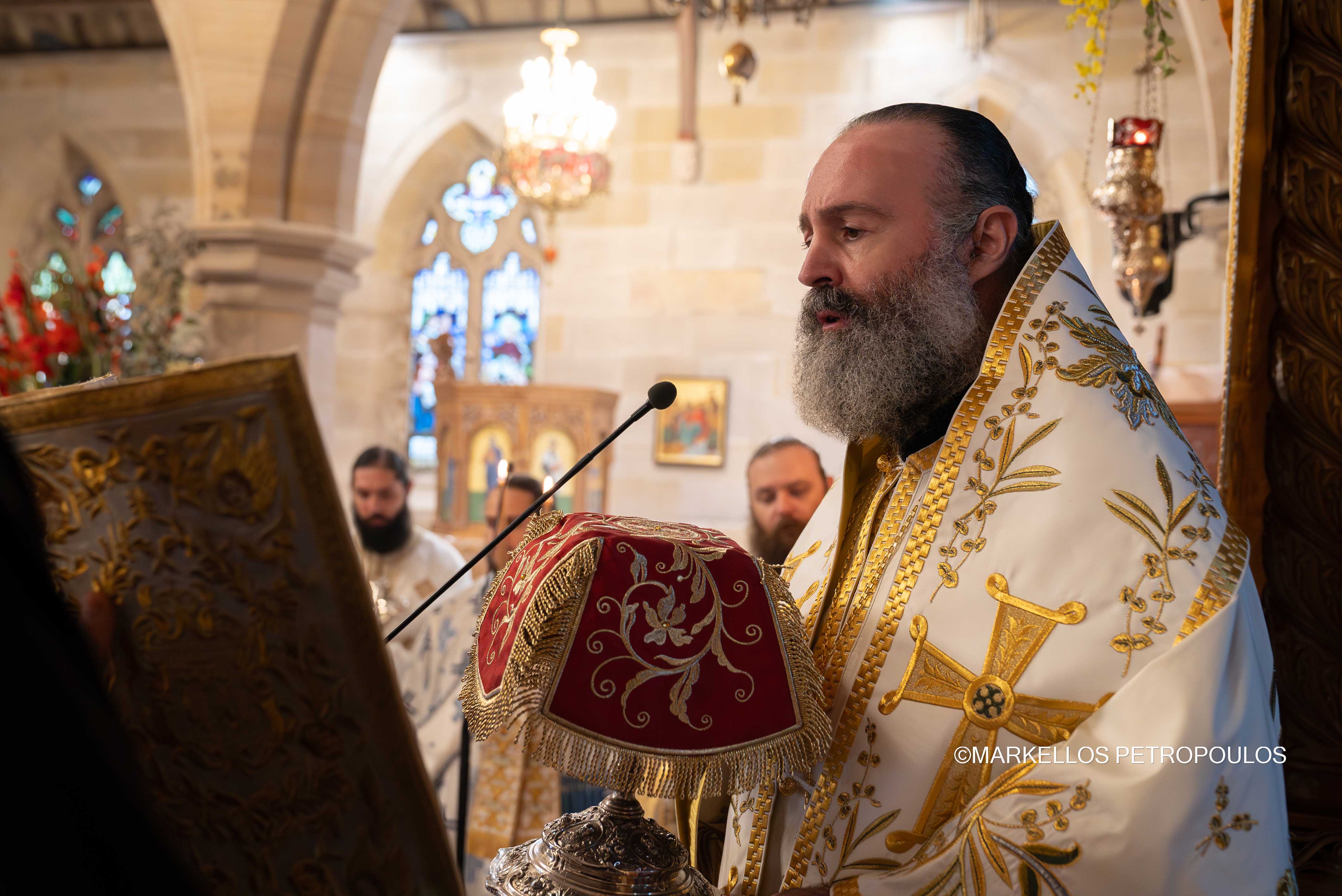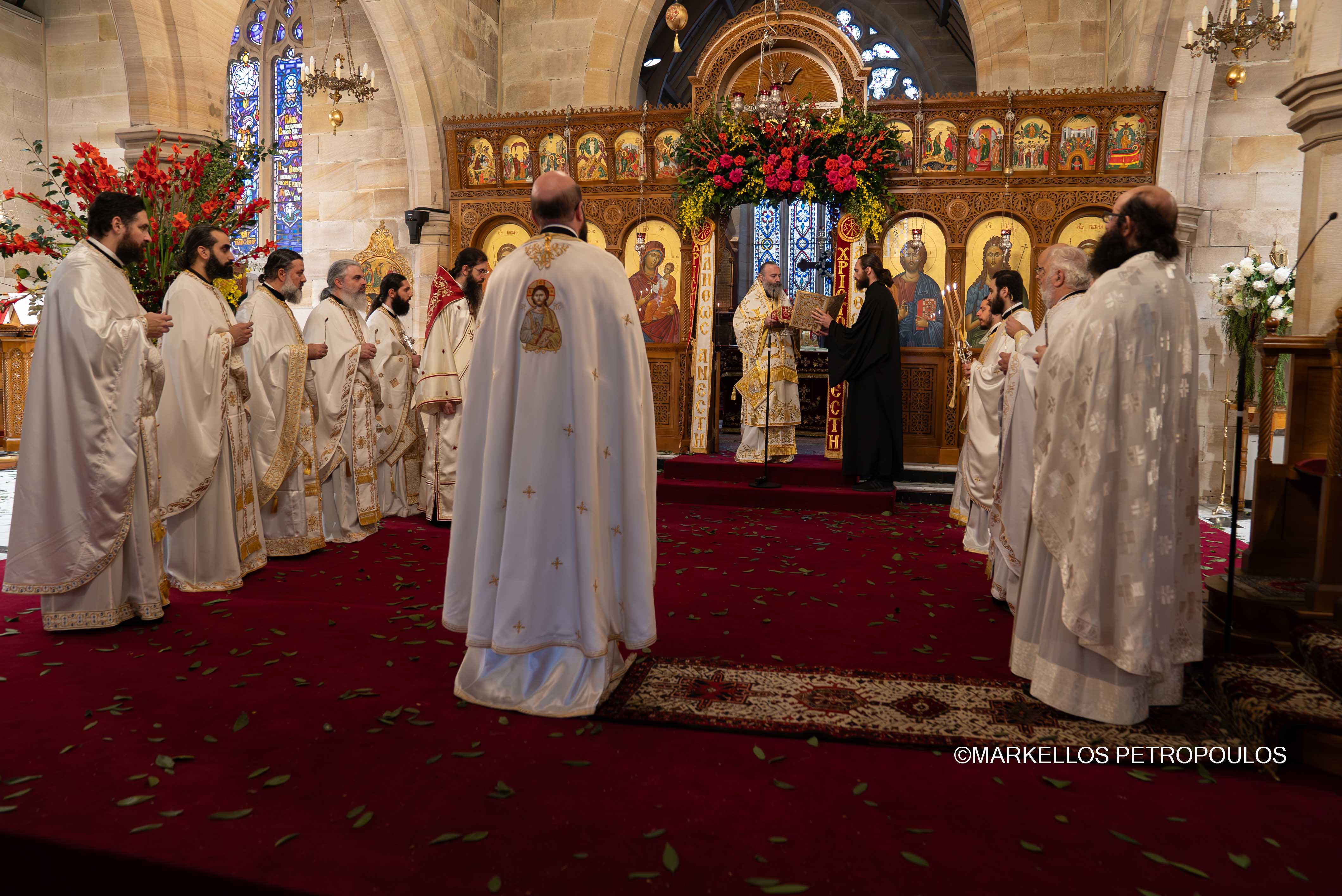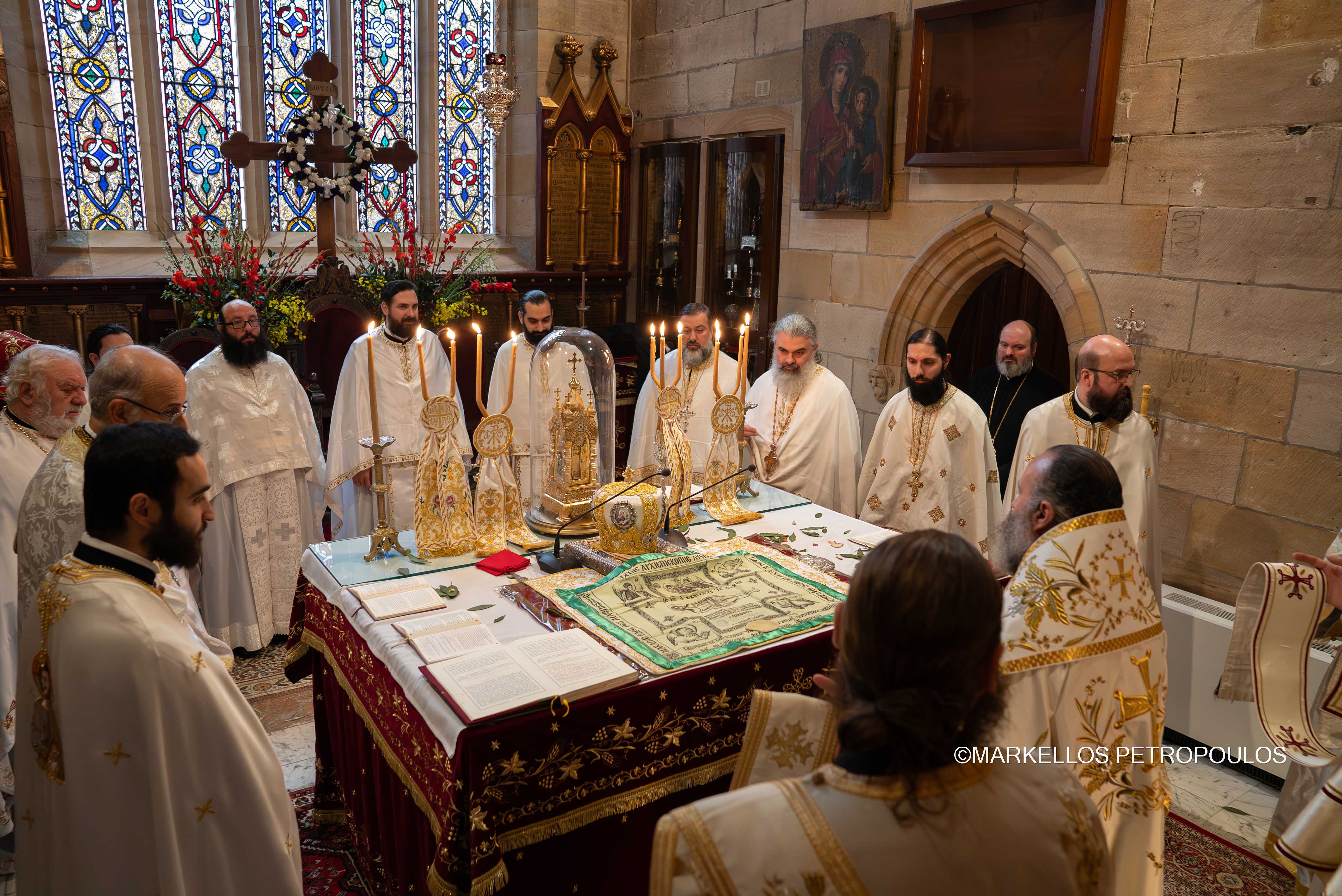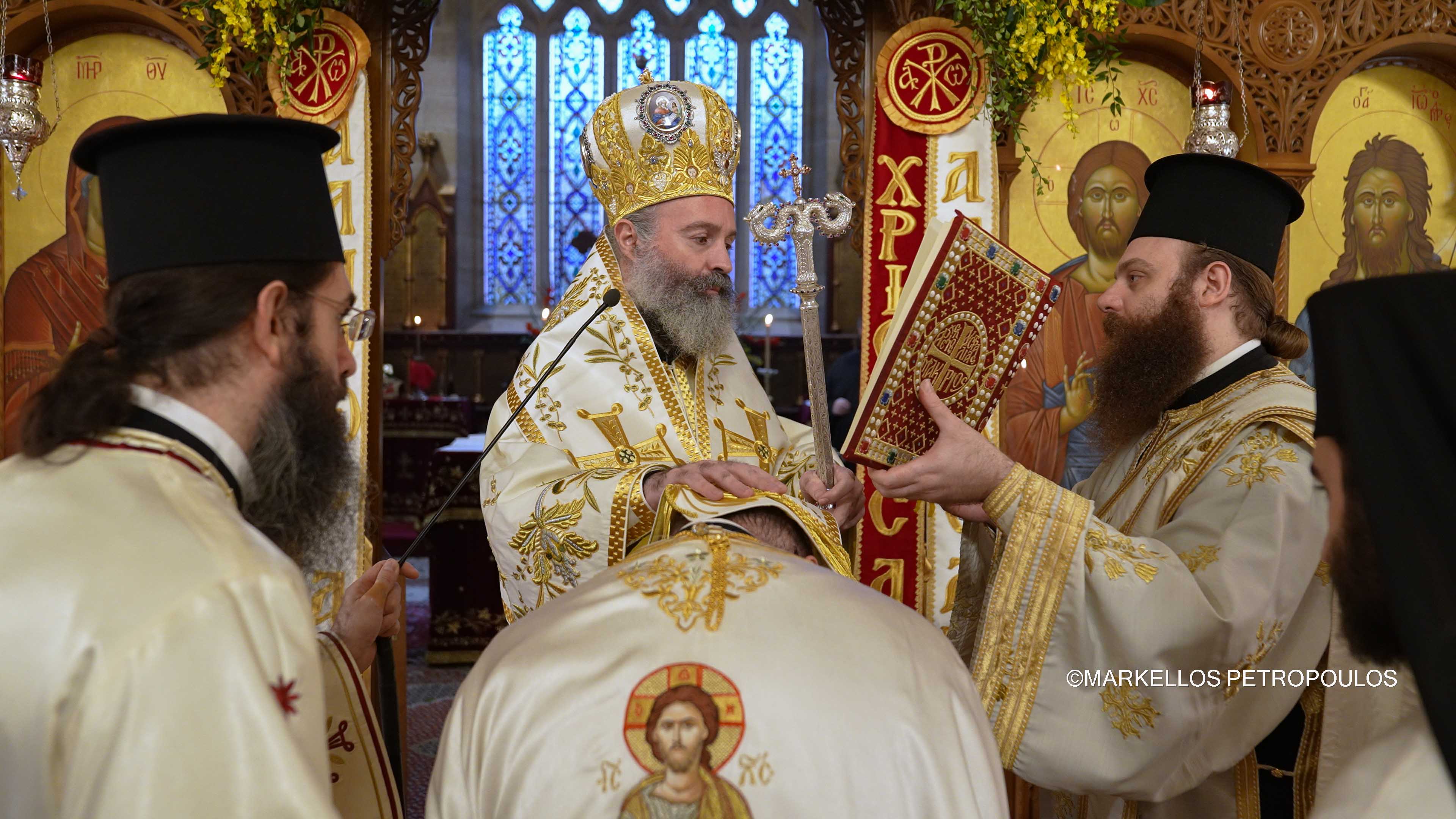Archbishop Makarios of Australia: “Whatever we try to acquire through coercion and with our human powers alone is not blessed by God”
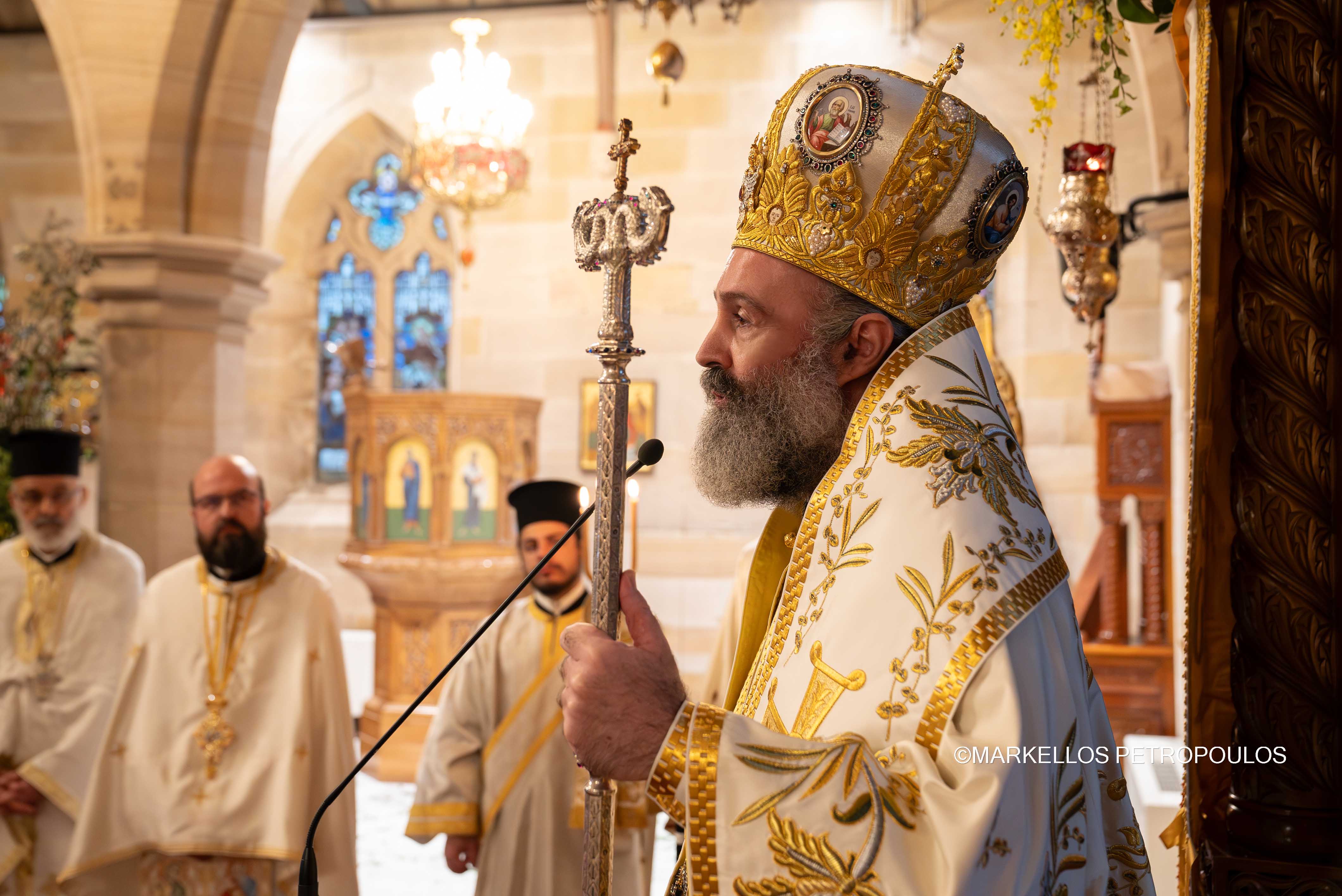

With ecclesiastical splendour and in an atmosphere of Paschal joy, the fifth anniversary of the election of His Eminence Archbishop of Australia Makarios was celebrated on Thursday of Bright Week, May 9, at the Holy Cathedral of the Annunciation of the Theotokos in Sydney. It was on the same day in 2019 when the Holy and Sacred Synod of the Ecumenical Patriarchate unanimously elected His Eminence Makarios as the sixth Shepherd of the Church in Australia. Since then, this day has been a source of joy and jubilation for the holy clergy and the faithful people of the fifth continent, and an occasion for praising the All-Good God.
So, this year too, on the occasion of the anniversary of the Archbishop’s election, Their Graces Bishop Iakovos of Miletoupolis, Bishop Christodoulos of Magnesia, and Bishop Bartholomew of Charioupolis, along with many clergy from the city of Sydney and other cities of Australia, as well as a multitude of devout faithful, gathered “in the one place ” to convey their warm wishes to their Shepherd. His Eminence Makarios, who presided over the Divine Liturgy in memory of Saint Christopher the Great Martyr, thanked everyone for their presence, visibly moved by the demonstrations of respect and love towards him.
Furthermore, he gave his best wishes to the Chancellor of the Holy Archdiocese, Archimandrite of the Ecumenical Throne Christophoros Krikellis, who was celebrating his name-day and at the end of the Divine Liturgy elevated him to the rank of Spiritual Father – Confessor. Referring to the authority to “bind and loose” sins granted by the Church, he spoke of a tremendous spiritual power that priests receive, which not even the angels have. “This, in one sense, is a benefaction from God to man,” he noted, “because forgiveness is granted by people with weaknesses, flaws, and passions, who know what it means to have the human tendency towards sin. Therefore, every person who has the same nature and the same inclination can understand the other person, because he fell into sin.”


Moreover, His Eminence praised the virtues and ethos of the Chancellor, noting among other things that his ministry is modest, quiet, humble and, at the same time, is distinguished by his sacrificial spirit and dedication to the Church and his Archbishop. In fact, he even promoted the example of Fr Christophoros as a model for all those who undertake ministries within the Church. “Let everyone dedicate themselves to the ministry assigned to them by the Church,” he urged, continuing: “Let us do what the Church asks of us, and God will bless us. And all other things will come. They will come beautifully, joyously, and triumphantly. And they will all come from God, so they will have great value. Because whatever does not come from God, and we try to acquire it coercively, with human powers alone, with human pressure, with human logic, know that this is not blessed. And that is why you will see people, even within the Church, even people among the clergy, who have many things but do not have spiritual peace and spiritual joy. So, perform your ministry, holy Chancellor, as you have done so far, with love, sacrifice, humility, and dedication, and God will bless your life and your prospects within the Church.”
It is noted that on the occasion of the feast of Saint Christophoros, Archbishop Makarios chanted a Trisagion for the repose of the soul of the first Shepherd of the fifth continent, the late Metropolitan Christophoros of Australia and New Zealand. “He was one of the prominent hierarchical figures of the past century,” he noted regarding his late predecessor, adding that “unfortunately, Australia was then in a difficult situation and could not fully understand the personality and prestige of this great Hierarch.” Furthermore, recalling his studies at the Theological School of Halki and at the University of Oxford, as well as his service at the Patriarchal Court and his brilliant ministry as Shepherd of the Holy Metropolis of Serres, he emphasised that the late Metropolitan Christophoros worked in Australia with minimal means and under adverse conditions, and yet managed to lay the foundations for the building of a Church that today holds a prominent position in the Orthodox world.


